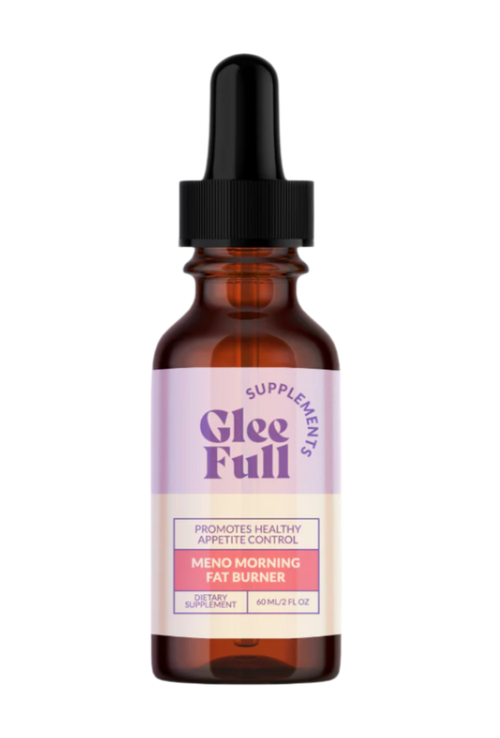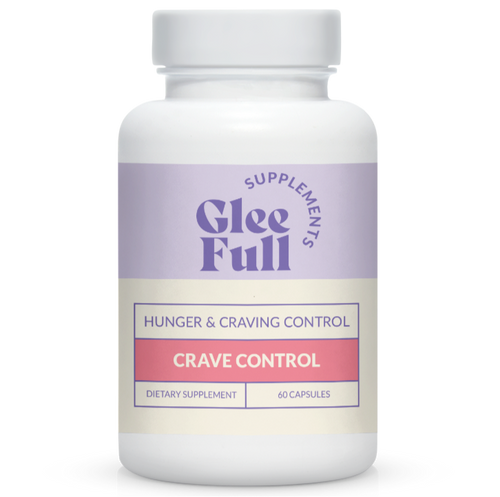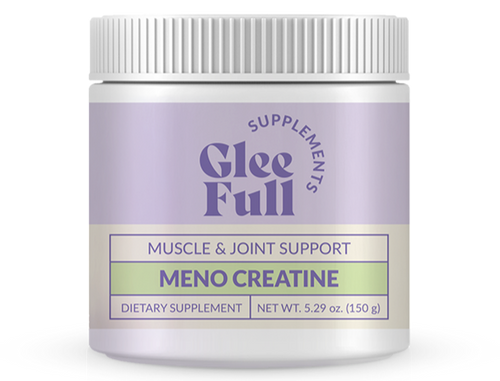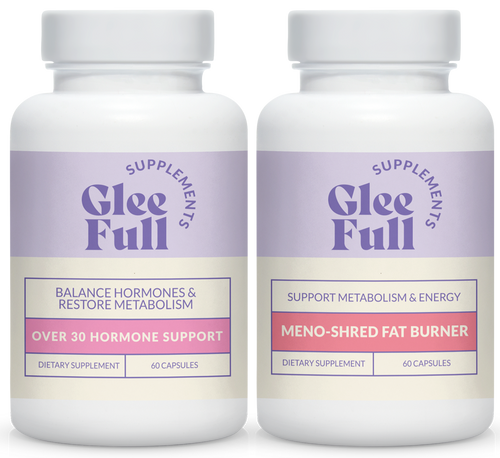Understanding PMS and its common symptoms
Juggling work deadlines, family commitments, and social life can be a whirlwind for any professional woman. But add in the unpredictable rollercoaster of premenstrual syndrome (PMS) symptoms, and it can feel like navigating a whole new level of chaos!
Premenstrual syndrome (PMS) is a collection of physical and emotional symptoms that occur in the days or weeks leading up to menstruation. While the exact cause of PMS is not fully understood, hormonal fluctuations, particularly changes in estrogen and progesterone levels, play a significant role.
Affecting up to 85% of menstruating women globally, including those in India, UK, US, and Canada, PMS is a collection of physical and emotional symptoms that occur in the days leading up to your period. While the exact cause remains under research, hormonal fluctuations during the menstrual cycle are believed to play a significant role.
Common PMS Symptoms
1. Physical: Cramps, bloating, breast tenderness, headaches, fatigue, difficulty sleeping.
2. Emotional: Irritability, mood swings, anxiety, depression, trouble concentrating.
3. Behavioral: Food cravings, changes in appetite, difficulty sleeping, social withdrawal.
PMS is a normal part of the menstrual cycle, and experiencing these symptoms doesn't indicate any underlying medical condition. However, if you find the symptoms are severely impacting your daily life, it's crucial to consult a healthcare professional.
Every woman's menstrual cycle is unique, but what happens when it becomes irregular? From missed periods to unpredictable flow patterns, menstrual irregularities can be both confusing and concerning. In this blog post, we'll explore the common menstrual irregularities experienced by women in the US and Canada, shedding light on their underlying causes and offering insights into understanding premenstrual syndrome (PMS) and its common symptoms.
1. Understanding Menstrual Irregularities: Menstrual irregularities encompass a wide range of changes in the menstrual cycle, including variations in cycle length, flow intensity, and the presence of symptoms such as cramping and bloating. While occasional irregularities are common and often benign, persistent irregularities may indicate underlying health concerns.
2. Common Menstrual Irregularities:
- Missed Periods: Skipping a period occasionally is usually nothing to worry about, but persistent missed periods may be a sign of hormonal imbalances, thyroid disorders, or underlying health conditions.
- Heavy or Prolonged Bleeding: Excessive or prolonged menstrual bleeding, known as menorrhagia, can be caused by hormonal imbalances, uterine fibroids, polyps, or bleeding disorders.
- Irregular Cycle Length: A regular menstrual cycle typically ranges from 21 to 35 days, but variations outside this range may indicate hormonal imbalances, polycystic ovary syndrome (PCOS), thyroid disorders, or stress.
- Mid-cycle Spotting: Spotting between periods, especially around ovulation, may be normal for some women. However, persistent or heavy spotting could signal hormonal imbalances or underlying health issues.
- Severe Menstrual Symptoms: Intense menstrual cramps, bloating, breast tenderness, and mood swings are common symptoms of PMS. While occasional discomfort is normal, severe symptoms may indicate underlying hormonal imbalances or conditions such as endometriosis or adenomyosis.
Causes of Menstrual Irregularities
Fluctuations in estrogen and progesterone levels can disrupt the menstrual cycle, leading to irregularities in timing, flow, and symptoms. Chronic stress can affect hormone production and regulation, potentially causing menstrual irregularities such as missed periods or changes in cycle length. Conditions such as hypothyroidism or hyperthyroidism can disrupt hormone balance and affect menstrual regularity. Polycystic Ovary Syndrome (PCOS): PCOS is a common hormonal disorder characterized by irregular periods, ovarian cysts, and hormonal imbalances.
Uterine Fibroids: Noncancerous growths in the uterus can cause heavy or prolonged menstrual bleeding and other irregularities. Endometriosis: This condition occurs when tissue similar to the lining of the uterus grows outside the uterus, leading to painful periods, irregular bleeding, and other symptoms.
Perimenopause: The transition to menopause can cause fluctuations in hormone levels, leading to irregular periods and other changes in the menstrual cycle.
Understanding menstrual irregularities and their causes is crucial for maintaining reproductive health and overall well-being. If you're experiencing persistent or concerning changes in your menstrual cycle, it's essential to consult with a healthcare provider to identify any underlying issues and explore appropriate treatment options. By staying informed and proactive about your menstrual health, you can take control of your well-being and navigate through any challenges with confidence.
While there's no one-size-fits-all cure for PMS, several lifestyle modifications can help manage your symptoms:
- Healthy diet: Prioritize fruits, vegetables, and whole grains while limiting processed foods, excessive salt, and sugar.
- Regular exercise: Aim for at least 30 minutes of moderate-intensity exercise most days of the week.
- Stress management: Techniques like yoga, meditation, and deep breathing can help manage stress and improve overall well-being.
- Adequate sleep: Aim for 7-8 hours of quality sleep each night.
- Consider natural remedies: Talk to your doctor about using natural supplements like magnesium or evening primrose oil, but avoid self-treatment without proper guidance.
Understanding PMS and being proactive about managing its symptoms can empower you to navigate this phase with confidence and control. Remember, you're not alone in this journey!
Unpacking Hot Flashes & Weight Gain
It's 3 am, the room feels like a furnace, and your pajamas are suddenly soaked. Sound familiar? Welcome to the world of hot flashes, a common symptom of menopause experienced by up to 80% of women in the US and Canada. But hot flashes aren't the only unwelcome guests during this natural life transition. Many women also struggle with unexplained weight gain.
Menopause, marking the end of your menstrual cycle, typically occurs between the ages of 45 and 55. It's caused by a decline in estrogen and progesterone production, hormones that play a crucial role in various bodily functions. These hormonal changes can lead to a range of symptoms, including Hot flashes,
Night sweats, Vaginal dryness, Mood swings, Sleep problems and Weight gain.
While aging and decreased physical activity can contribute to weight gain, hormonal changes during menopause play a significant role. Estrogen helps regulate fat storage and metabolism, and its decline can lead to:
> Increased fat storage: Particularly around the belly area, which can be more challenging to lose.
> Slower metabolism: The body burns calories at a slower rate, making weight management more difficult.
Balancing Hormones for Better Health
Ever feel like your emotions are on a wild ride, your energy levels are all over the map, and your body just isn't cooperating? You're not alone! Hormonal imbalances can affect women of all ages, impacting everything from mood swings and sleep to weight management and overall well-being. But don't despair! By understanding and addressing hormonal imbalances, you can regain control and experience better health.
Understanding Your Hormonal Orchestra
Our bodies are complex ecosystems, and hormones act as conductors, orchestrating various functions. From regulating your menstrual cycle to managing stress and metabolism, hormones play a crucial role in keeping you feeling your best. However, various factors, including stress, diet, and lifestyle choices, can disrupt this delicate balance, leading to a symphony of unwanted symptoms.
Common Signs of Hormonal Imbalance
- Weight fluctuations: Unexplained weight gain or difficulty losing weight.
- Mood swings: Increased irritability, anxiety, or depression.
- Menstrual irregularities: Changes in your cycle, including missed periods, heavier bleeding, or cramping.
- Fatigue and lack of energy: Feeling constantly tired, even after adequate sleep.
- Sleep disturbances: Difficulty falling asleep, staying asleep, or experiencing restless sleep.
- Decreased libido: Reduced interest in physical intimacy.
- Skin changes: Acne breakouts, dry skin, or hair loss.
While experiencing some of these symptoms occasionally is normal, persistent or severe issues can significantly impact your quality of life. Fortunately, several steps can help you regain hormonal balance and feel your best:
Prioritize a healthy diet: Focus on whole foods like fruits, vegetables, and whole grains, while limiting processed foods, sugary drinks, and unhealthy fats.
Physical activity is a powerful stress reliever and mood booster. Aim to incorporate at least 30 minutes of moderate exercise into your daily routine, whether it's walking, jogging, yoga, or dancing.
Manage stress effectively: Practice stress-reduction techniques like yoga, meditation, or deep breathing to improve overall well-being.
Stress is known to exacerbate symptoms of PMS by disrupting the delicate balance of hormones in the body. When you're stressed, your body releases cortisol, often referred to as the "stress hormone." Elevated cortisol levels can interfere with the production and regulation of other hormones, such as estrogen and progesterone, leading to worsened PMS symptoms.
Managing stress is essential for achieving hormonal harmony and alleviating symptoms of PMS. By incorporating mindfulness meditation, regular exercise, deep breathing exercises, prioritizing self-care, and seeking support when needed, you can effectively manage stress levels and promote overall well-being during the menstrual cycle.
Ensure adequate sleep: Aim for 7-8 hours of quality sleep each night to allow your body to restore and regulate hormones.
Consider natural remedies: Using natural supplements like magnesium or evening primrose oil, but avoid self-treatment without proper guidance.
The Connection Between Stress and Hormonal Health
Stress triggers a complex cascade of hormonal responses in the body, primarily involving the release of cortisol, the body's primary stress hormone. When you're under stress, cortisol levels rise, setting off a chain reaction that can disrupt the delicate balance of hormones involved in menstrual cycles.
Effects of Stress on Hormonal Health:
Hormonal Imbalance: Chronic stress can disrupt the balance of estrogen and progesterone, two key hormones that regulate the menstrual cycle. Fluctuations in these hormones can lead to irregularities in menstruation and exacerbate symptoms of PMS.
Increased PMS Symptoms: High levels of stress are associated with more severe PMS symptoms, including mood swings, irritability, fatigue, and physical discomfort such as bloating and breast tenderness.
Impact on Menstrual Cycle: Stress can affect the length and regularity of your menstrual cycle, leading to variations in cycle length and the timing of ovulation. This can make it challenging to predict when your period will occur and contribute to feelings of uncertainty and anxiety.
Exacerbation of Existing Conditions: For women with existing hormonal imbalances or conditions such as polycystic ovary syndrome (PCOS) or endometriosis, stress can exacerbate symptoms and make managing these conditions more challenging
Compromised Reproductive Health: Prolonged or chronic stress may affect fertility by disrupting ovulation and menstrual cycles, potentially leading to difficulties conceiving.
The effects of stress on hormonal health are undeniable, and understanding how stress impacts your body can empower you to take proactive steps to manage your well-being. By prioritizing stress management techniques such as relaxation, exercise, healthy eating, and seeking support when needed, you can mitigate the effects of stress on your hormonal health and navigate through PMS with greater ease.
Combatting Hormonal Acne and Dark Spots
Hormonal fluctuations, stress, and environmental factors can wreak havoc on our skin, leading to pesky breakouts and stubborn dark spots. But fear not! In this blog post, we'll explore effective strategies to combat hormonal acne and dark spots, helping you achieve clearer, more radiant skin.
Hormonal acne is typically characterized by deep, inflamed pimples along the jawline, chin, and cheeks, often occurring during hormonal fluctuations such as menstruation, pregnancy, or menopause. On the other hand, dark spots, or hyperpigmentation, result from an overproduction of melanin triggered by factors like sun exposure, inflammation, or hormonal changes.
Identifying Triggers and Contributing Factors:
- Hormonal Imbalances: Fluctuations in estrogen, progesterone, and testosterone levels can stimulate excess oil production, leading to clogged pores and acne breakouts.
- Stress: Chronic stress can trigger hormonal fluctuations and inflammation, exacerbating acne and dark spot formation.
- Diet: Consuming high-glycemic foods and dairy products may worsen acne, while inadequate intake of antioxidants and essential nutrients can hinder skin repair and renewal.
- Environmental Factors: Exposure to UV radiation, pollution, and harsh skincare products can damage the skin barrier, leading to inflammation and pigmentation irregularities.
Effective Strategies for Combatting Hormonal Acne
- Gentle Cleansing: Use a mild, non-comedogenic cleanser to remove dirt, oil, and impurities without stripping the skin's natural oils.
- Topical Treatments: Incorporate acne-fighting ingredients like benzoyl peroxide, salicylic acid, or retinoids into your skincare routine to target acne-causing bacteria and unclog pores.
- Balanced Diet: Opt for a balanced diet rich in fruits, vegetables, whole grains, and lean proteins to support skin health and reduce inflammation.
- Stress Management: Practice stress-relief techniques such as meditation, yoga, or deep breathing exercises to manage cortisol levels and minimize hormonal fluctuations.
- Regular Exercise: Engage in regular physical activity to improve circulation, reduce stress, and support overall skin health.
Brightening Solutions for Dark Spots
- Exfoliation: Incorporate exfoliating ingredients like alpha hydroxy acids (AHAs) or beta hydroxy acids (BHAs) into your skincare routine to promote cell turnover and fade dark spots.
- Vitamin C Serums: Use vitamin C serums to brighten the complexion, reduce pigmentation, and protect against free radical damage.
- Hydroquinone: Consider using hydroquinone-based products under the guidance of a dermatologist to lighten stubborn dark spots and even out skin tone.
- Sun Protection: Apply a broad-spectrum sunscreen with SPF 30 or higher daily to protect the skin from UV-induced pigmentation and prevent dark spots from worsening.
Combatting hormonal acne and dark spots requires a holistic approach that addresses underlying triggers, promotes skin health, and targets specific concerns. By understanding the factors contributing to acne and pigmentation irregularities and implementing effective skincare strategies, you can achieve clearer, brighter skin and regain your confidence. Remember to be patient and consistent with your skincare routine, and don't hesitate to seek professional guidance if needed. With the right approach, you can overcome hormonal acne and dark spots and unveil a complexion that radiates health and vitality.
Optimizing Digestive Health for Hormonal Balance
The secret to restoring harmony may lie within your digestive system. In this blog post, we'll delve into the fascinating connection between digestive health and hormonal balance, unveiling actionable strategies to optimize digestion and promote radiant, glowing skin from within.
The gut, often referred to as the "second brain," plays a crucial role in regulating hormone production and balance. Gut microbiota, the diverse community of microorganisms residing in the digestive tract, influence hormone synthesis, metabolism, and signaling pathways.
Disruptions in gut health, such as dysbiosis (microbial imbalance), intestinal permeability (leaky gut), and inflammation, can contribute to hormonal imbalances and associated symptoms.
Incorporate fiber-rich foods like fruits, vegetables, legumes, and whole grains into your diet to support digestive motility, regulate bowel movements, and promote the growth of beneficial gut bacteria. Consume probiotic-rich foods such as yogurt, kefir, sauerkraut, and kombucha to replenish beneficial bacteria in the gut and enhance immune function. Include prebiotic foods like garlic, onions, bananas, and asparagus to nourish and support the growth of beneficial gut bacteria.
Drink an adequate amount of water throughout the day to maintain hydration levels, support digestion, and prevent constipation.
Stress Management: Practice stress-reduction techniques such as mindfulness, meditation, yoga, or deep breathing exercises to lower cortisol levels and promote gut health.
Support liver function with foods rich in antioxidants, such as leafy greens, cruciferous vegetables, berries, and herbs like turmeric and milk thistle.
Enhance natural detoxification pathways by consuming sulfur-rich foods (garlic, onions, cruciferous vegetables), chlorophyll-rich greens, and adequate hydration. Opt for a balanced diet low in refined sugars and processed foods to prevent blood sugar spikes and insulin resistance, which can disrupt hormone balance.
Address underlying gut issues to reduce systemic inflammation, which can manifest as acne, eczema, or other skin conditions. Nutrient Absorption: Improve nutrient absorption by optimizing digestive function, ensuring essential vitamins and minerals are readily available for skin health and repair.
Microbiome Balance: Restore microbial balance in the gut to promote skin-friendly bacteria and minimize harmful pathogens associated with skin issues.
Optimizing digestive health is not only essential for proper nutrient absorption and overall well-being but also plays a pivotal role in hormonal balance and skin health. By nurturing your gut with a nutrient-rich diet, probiotics, and stress management techniques, you can support hormonal harmony, alleviate digestive discomfort, and achieve a radiant complexion from the inside out. Remember, small changes in your lifestyle and dietary habits can lead to significant improvements in both digestive and hormonal health.
Easing Menopausal Symptoms Naturally
From hot flashes to mood swings, navigating this life transition can feel like an uphill battle. But fear not, because relief may be closer than you think. In this blog post, we'll explore natural and effective strategies to ease menopausal symptoms and help you reclaim your vitality and well-being.
Menopause marks the end of a woman's reproductive years and is typically characterized by hormonal fluctuations, including a decline in estrogen levels.
Common symptoms of menopause include hot flashes, night sweats, mood swings, vaginal dryness, sleep disturbances, and changes in libido.
While menopause is a natural part of aging, the severity and duration of symptoms can vary from woman to woman.
Black Cohosh: This herbal remedy is widely used to alleviate hot flashes, night sweats, and mood swings associated with menopause. Dong Quai: Known as the "female ginseng," dong quai is believed to support hormonal balance and relieve menstrual discomfort and menopausal symptoms. Soy products contain phytoestrogens, plant-based compounds that mimic estrogen in the body and may help alleviate menopausal symptoms. Rich in gamma-linolenic acid (GLA), evening primrose oil is often used to reduce hot flashes, breast tenderness, and mood swings during menopause. Adequate vitamin D levels are essential for bone health and may help reduce the risk of osteoporosis, a common concern for menopausal women.
Incorporate more whole foods, fruits, vegetables, and lean proteins into your diet while reducing intake of caffeine, alcohol, spicy foods, and refined sugars.
Engage in regular physical activity, such as walking, yoga, swimming, or cycling, to improve mood, reduce stress, and promote overall well-being.
Practice stress-reduction techniques like deep breathing exercises, meditation, or mindfulness to alleviate anxiety and tension associated with menopausal symptoms. Explore mind-body therapies like acupuncture, massage therapy, or tai chi to promote relaxation, balance hormones, and enhance overall wellness.
Omega-3 Fatty Acids: Include omega-3-rich foods like fatty fish (salmon, mackerel, sardines), flaxseeds, chia seeds, and walnuts to reduce inflammation and support heart health. Calcium and Magnesium: Ensure adequate intake of calcium-rich foods (dairy, leafy greens, almonds) and magnesium (whole grains, nuts, seeds) to support bone health and reduce muscle cramps.
Hydration: Drink plenty of water throughout the day to stay hydrated and support overall health and well-being.
Menopause is a natural phase of life that can bring about a range of physical and emotional changes. However, with the right approach, you can ease menopausal symptoms and embrace this new chapter with confidence and vitality. By incorporating hormone-balancing herbs, supplements, lifestyle modifications, and supportive nutritional choices into your daily routine, you can navigate menopause with grace and reclaim your sense of well-being. Try Estro-Harmony now!
Solutions for Women's Wellness
We'll explore the remarkable world of herbal supplements, offering effective remedies for common female health concerns. Get ready to discover the healing benefits of nature's pharmacy and reclaim your vitality!
Natural Remedies for Alleviating Menstrual Cramps:
> Chasteberry (Vitex): This herb is renowned for its ability to balance hormones and alleviate menstrual cramps, bloating, and breast tenderness.
> Ginger: A potent anti-inflammatory, ginger can help reduce menstrual pain and discomfort by soothing muscle spasms and improving circulation.
> Dong Quai: Known as the "female ginseng," dong quai is traditionally used to regulate menstrual cycles, relieve cramps, and support overall reproductive health.
> Turmeric: With its anti-inflammatory properties, turmeric can help ease menstrual pain and reduce inflammation associated with cramping.
> Black Cohosh: This herb may help alleviate menstrual discomfort, hot flashes, and other symptoms associated with hormonal imbalance.
Herbal Supplements for Hormonal Balance During Menopause:
> Black Cohosh: Widely used to manage menopausal symptoms such as hot flashes, night sweats, and mood swings by supporting hormonal balance.
> Red Clover: Rich in phytoestrogens, red clover may help alleviate menopausal symptoms and promote overall well-being during this transitional phase.
> Maca Root: Known for its adaptogenic properties, maca root may help balance hormones, boost energy levels, and improve mood during menopause.
> Soy Isoflavones: Soy products contain phytoestrogens that mimic estrogen in the body, offering relief from hot flashes, night sweats, and other menopausal symptoms.
> Dong Quai: This herb has been used for centuries to support women's health and may help alleviate menopausal symptoms like vaginal dryness, mood swings, and fatigue.
Herbal Supplements for Stress Management and Adrenal Support
> Ashwagandha: An adaptogenic herb, ashwagandha helps the body adapt to stress, supports adrenal function, and promotes overall resilience.
> Rhodiola: Known for its stress-reducing effects, rhodiola may help improve mood, increase energy levels, and enhance mental clarity during times of stress.
> Holy Basil (Tulsi): Revered in Ayurvedic medicine, holy basil is a powerful adaptogen that can help reduce stress, promote relaxation, and support emotional well-being.
> Passionflower: With its calming properties, passionflower may help reduce anxiety, promote restful sleep, and alleviate tension and irritability.
> Lemon Balm: This soothing herb has been used for centuries to calm the nerves, reduce stress, and support emotional balance.
Herbal Supplements for Reducing Irritability and Mood Swings:
St. John's Wort: Often used to alleviate mild to moderate depression and anxiety, St. John's Wort may help stabilize mood, reduce irritability, and promote emotional well-being.
> Saffron: Known as the "sunshine spice," saffron may help improve mood, reduce symptoms of depression, and enhance overall emotional health.
> Valerian Root: This calming herb can help reduce nervousness, irritability, and anxiety, promoting relaxation and restful sleep.
> Lavender: With its calming aroma, lavender can help soothe frazzled nerves, reduce irritability, and promote a sense of tranquility and well-being.
> Chamomile: A gentle herb known for its calming properties, chamomile can help ease tension, reduce irritability, and promote relaxation and restful sleep.
Empower yourself with the healing power of nature's remedies and embrace holistic solutions for women's wellness. From menstrual cramps to menopausal symptoms, stress, and mood swings, there's a herbal supplement to support every aspect of your health journey. Whether you're seeking relief from discomfort or aiming to enhance your emotional well-being, consider incorporating these herbal allies into your daily routine. Try Estro-Harmony now!
Here's to embracing natural solutions and thriving in every stage of life!

 Meno-Burn Collagen
Meno-Burn Collagen
 Meno Morning Fat Burner
Meno Morning Fat Burner
 Meno-Shred Fat Burner
Meno-Shred Fat Burner
 Carb Blocker
Carb Blocker
 Flat Tummy Tea
Flat Tummy Tea
 GLP-1 Crave Control
GLP-1 Crave Control
 Over 30 Hormone Support
Over 30 Hormone Support
 Over 30 Hormone Support Plus
Over 30 Hormone Support Plus
 Estro Harmony
Estro Harmony
 Adrenal Restore
Adrenal Restore
 Eternal Passion
Eternal Passion
 Thyroid Balance
Thyroid Balance
 HormoneLyte
HormoneLyte
 Post Meno Boost
Post Meno Boost
 Meno Brain Support
Meno Brain Support
 Meno Belly Flusher
Meno Belly Flusher
 Meno Gut Advanced
Meno Gut Advanced
 Bloat Buster
Bloat Buster
 Meno Belly Night Burn
Meno Belly Night Burn
 Meno Joint Relief
Meno Joint Relief
 Over 30 Multi Vitamin
Over 30 Multi Vitamin
 Meno Gluco Control
Meno Gluco Control
 V-Rejuvenation
V-Rejuvenation
 Meno Creatine
Meno Creatine
 Meno-Weight Loss System
Meno-Weight Loss System
 Meno-Detox System
Meno-Detox System
 Meno Joint Support System
Meno Joint Support System
 Meno Deep Sleep System
Meno Deep Sleep System
 Meno Mood Boost System
Meno Mood Boost System
 Complete Hormone Reset Bundle
Complete Hormone Reset Bundle
 Ultra Fat Burner Bundle
Ultra Fat Burner Bundle







